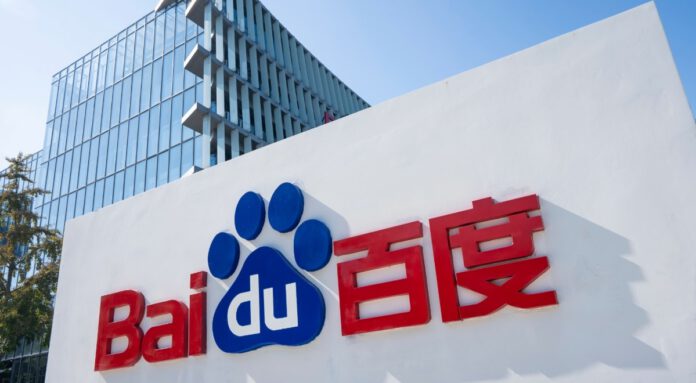
Baidu has entered a decisive phase in its AI transformation. On November 18, the company released its Q3 financial report and, for the first time, disclosed detailed revenue from its AI business—an unprecedented move among major global internet firms. The numbers reveal that Baidu’s long AI investment cycle is shifting into a period of accelerated monetization. In the third quarter, AI-related revenue rose more than 50% year-on-year, driven by AI Cloud, AI applications, and AI-native marketing services. This performance, alongside Baidu’s consistent leadership in China’s AI public cloud and its global expansion in autonomous driving, has strengthened investor confidence that Baidu’s long-term value is being reassessed.
Much of Baidu’s AI revenue comes from the cloud. AI Cloud grew 33% year-on-year, with subscription revenue for high-performance AI infrastructure surging 128%. IDC’s latest data shows China’s AI public cloud market reached €2.39 billion in 2024, where Baidu Smart Cloud held a 24.6% share, maintaining its position as the market leader for six consecutive years. Central state-owned enterprises, every systemically important bank, over 800 financial institutions, the top smartphone manufacturers, and the top carmakers in China all utilize Baidu Smart Cloud. Its penetration across industries is currently the highest in the domestic AI sector.
AI applications generated €312 million in Q3. Baidu Wenku, Baidu Netdisk, and its Digital Employee suite form the core of its consumer and enterprise-facing AI products, most following subscription-based models that provide stable, high-quality revenue. GenFlow 3.0, built into Wenku and Netdisk, now has more than 20 million active users and stands as the world’s largest general-purpose intelligent agent system, helping individuals become “super users” in work and life. Another major product, Baidu Famou—designed for generating globally optimal solutions for complex decisions—immediately attracted over 1,000 enterprise testing applications after its 2025 debut. Meanwhile, Baidu’s no-code platform Miaoda has enabled users to create more than 400,000 applications, with a new one appearing every minute. These AI-driven tools now support tens of millions across education, office productivity, commerce, and enterprise operations.

Revenue from AI-native marketing services surged 262% to €336 million, powered by Baidu’s AI Humanoid digital anchors and merchant intelligent agents. These systems are used across finance, education, media, culture, tourism, and e-commerce. In the financial industry, Baidu’s digital humans serve over half of major state-owned banks and operate continuously. In education, they increase content production efficiency twentyfold. In e-commerce, Baidu’s AI Humanoid anchors exceed 100,000 in number, lifting live-streaming conversion rates by over 30% while reducing operational costs by 80%. IDC’s latest rankings placed Baidu Huibo Star first in overall strength among digital human solutions.
Baidu’s accelerated AI commercialization rests on its full-stack technological architecture, making it one of the few companies in the world capable of offering end-to-end AI solutions. Its capabilities span AI chips, deep learning frameworks, large models, and application-layer services. The Kunlun chip series, which continues to mature, has been adopted by China Merchants Bank and secured billion-level procurement orders from China Mobile. Tests show Kunlun’s multimodal inference and cost-efficiency performance leading domestic peers. PaddlePaddle, China’s first industrial-grade deep learning framework, now supports over 23 million developers and 760,000 enterprises. Baidu’s Wenxin model has advanced to version 5.0 with 2.4 trillion parameters, achieving global-tier rankings across language, multimodal, and generation benchmarks.
Analysts believe these full-stack capabilities give Baidu a differentiated efficiency advantage. Guohai Securities notes that Baidu can integrate chips, frameworks, models, and applications into cost-effective AI cloud products that lower adoption barriers for enterprises, enabling real-world, scalable deployment. Everbright Securities also argues that Baidu’s AI ecosystem is entering a period where its commercial value warrants broader market reassessment.
Evidence of this value is visible in Baidu’s user-facing AI. Digital Employees assist with language learning, Miaoda democratizes software creation, and GenFlow significantly improves personal productivity. Famou’s problem-solving engine is being applied in industries from logistics to finance. As competition in AI shifts from model-size comparisons to real-world performance, Baidu’s full-stack approach increasingly serves as a concrete differentiator.
Capital markets have begun to recognize this shift. Since the start of 2025, Baidu’s Hong Kong shares have risen 37% and its US shares 35%. The surge reflects the large-scale monetization of its AI strategy, particularly the growth of its intelligent cloud, autonomous driving initiatives, and its successfully commercialized self-developed chips.
One of Baidu’s most valuable assets is its autonomous driving business. Apollo Go has become a global leader, reaching 3.1 million rides in Q3, up 212% year-on-year. Weekly fully driverless rides surpassed 250,000 in October, and cumulative global rides have exceeded 17 million. Baidu’s Robotaxi operations now span 22 cities worldwide with more than 140 million fully driverless kilometers completed. Its partnerships with Uber and Lyft signal a new stage of overseas expansion, already extending into the Middle East and Europe. Analysts widely recognize autonomous driving as a trillion-dollar opportunity; once commercialized at scale, it will reshape Baidu’s valuation model entirely. Compared with Waymo—valued at over $45 billion after its latest funding—Apollo Go, with similar accumulated mileage, remains undervalued and primed for significant reevaluation.
Baidu is also transforming its core search business through AI agents and digital humans. Intelligent Agent Advertising integrates product recommendations directly into AI-generated answers, shortening conversion paths and creating more native ad formats. Over 29,000 advertisers already use AI agents, and these ads account for 9% of Baidu’s core advertising revenue. Digital human services like Huibo Star create additional technology service revenue streams. Goldman Sachs highlights that the penetration of these new formats is accelerating and will gradually reshape traditional click-based advertising.
Nearly 20 institutions, including Goldman Sachs, have issued optimistic assessments of Baidu, raising target prices and encouraging long-term investment while acknowledging potential risks. As Baidu’s AI ecosystem expands across cloud computing, smart applications, autonomous driving, intelligent agents, and digital humans, the company is demonstrating tangible commercial progress across all segments. For many analysts, Baidu is now entering a renewed valuation cycle driven by its decade-long AI accumulation and its shift from experimentation to scaled profitability.
Source: Baidu, Xinhua, 36kr, marketing Chine, the Officier



